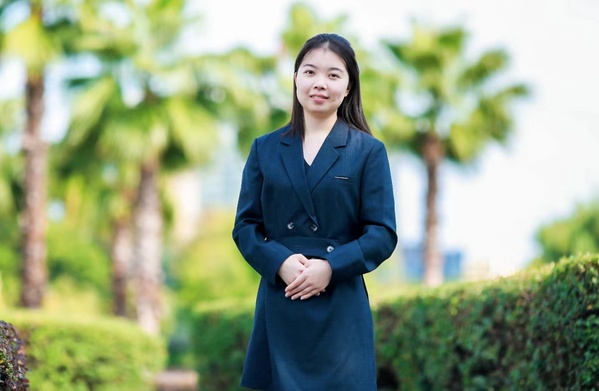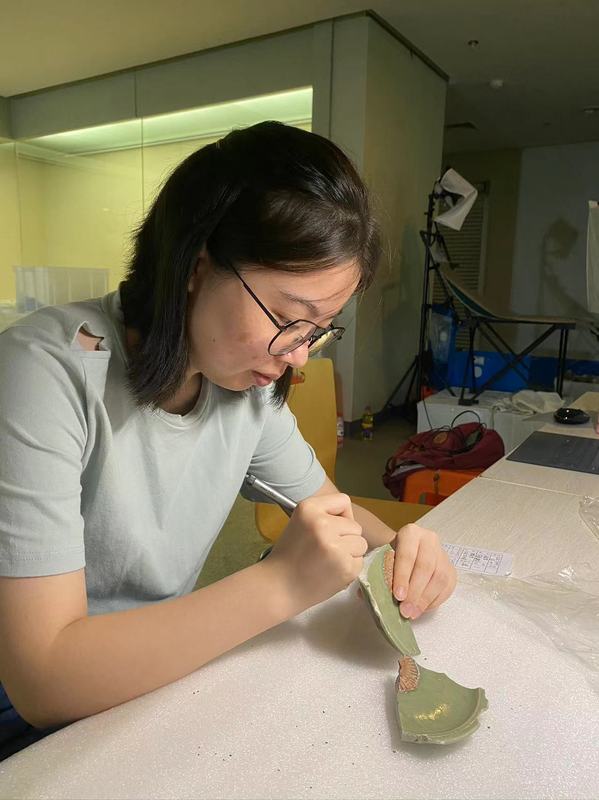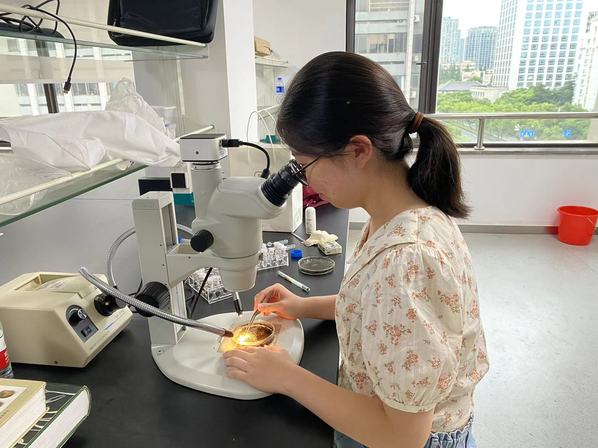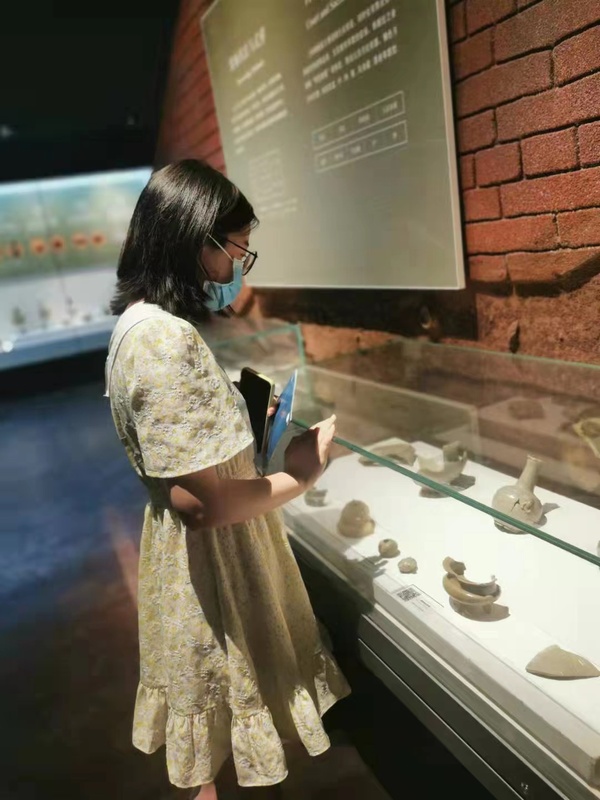Dialogue@ZJU: With TANG Mengxia, recipient of the Chu Kochen Scholarship
[Editor’s note: Set up in 1986, Chu Kochen Scholarship is the highest honor for ZJU students. TANG Mengxia, among 12 undergraduate students and 12 graduate students, is a recipient of Chu Kochen Scholarship for academic year 2021-2022. An undergraduate as she is, Tang has become a rather experienced researcher, who holds the ambition to trace back by thousands of years to discover the origin of China. In this dialogue, we will learn more about the field she deems so fascinating, as well as the dream lingering on in her mind.]

Q1: Your major is known as Cultural Heritage and Museology. What is this discipline about?
TANG: I learn a lot in my undergraduate years here at Zhejiang University. Generally, my major consists of two avenues of research: archaeology and museology. Archaeology studies relics while museology concerns museums and the practice of museum curation. This discipline is also well connected to cultural heritage and heritage conservation. Overall, they share common goals: to understand, to preserve, and to retell history.

TANG: Though the discipline falls into the category of humanities, we are required to perform many experiments in laboratory. For me, the most exciting moment is when we put the knowledge we learn into practice and see surprising outcomes. For example, it was such a satisfaction of our curiosity when we tried to find out what our ancestors ate by identifying plant remains under a microscope.

Q3: I notice that you have co-authored an article published on Frontier in Plant Science, a renowned Q1-SCI journal. Would you please tell us about that research?
TANG: Sure! It was about acorns, the fruit of oaks. Although they had been argued to be an important food resource for human beings in prehistory, we found it often difficult to recognize archaeological remains concerning acorn utilization. As a solution to that issue, we adopted an ethnological approach to perform a case study of ‘acorn mook (a type of jelly) making’ in South Korea to explore the Chaîne Opératoire of acorn utilization. The case was about starch extraction, which is one particular form of acorn processing technique that might have been exclusive to East Asia. Furthermore, based on our findings and existing literature, we drew attention to different methods of acorn processing in accordance with different species and culinary traditions, and discussed potential archaeological and archaeobotanical markers associated within each step.
Q4: Culture and history give a nation its identity, and serve to connect the whole of humanity. What do you think your knowledge and research could contribute to China and the rest of the world?
TANG: My academic interest lies in archaeobotany. I hope my research will help shed light on the subsistence strategy in pre-agricultural period and the origin of agriculture. Besides, people would be curious about how our ancestors lived or what things happened on this land in the past. Our research can tell the public these stories and give them an identity and a sense of belonging. In addition, since previous studies are mostly focused on Western sites and artefacts, some paradigms and standards might not be applicable to the findings in China. Therefore, through the joint efforts of Chinese scholars in this discipline, we will try to find the uniqueness of Chinese culture and give a universal conclusion.

Q5: Upon graduation, what is your plan for the future?
TANG: I wish to further my study on the history of human beings. More specifically, I will go on studying here at Zhejiang University for a master’s degree in archaeology. After that, I plan to pursue a doctor’s degree abroad and then come back to China. I dream of becoming a leading researcher in an institute of cultural relics and archaeology.
Q6: Based on your study and research, do you have any suggestions for your fellow students?
TANG: First, it is vital to have a clear idea of where your interest lies. I think it is the most important—and the most difficult as well—task for all undergraduate students. Even so, I still think we have a lot of better ways to know ourselves. Our university is an high-end platform with various courses, state-of-the-art equipment in laboratory, nice teachers, bundles of opportunities for internship, etc. We are encouraged to try more and find our own path.
Second, collect information efficiently. It is significant to know how to gather and use information and resources through different approaches. For example, I pay attention to academic frontier to form a better understanding of the discipline, before I set foot on a meaningful field of research. And by having discussions with teachers and fellow students, I get many helpful advice about career planning.
Third, all or nothing. I mean, if you are to do it, do it efficiently and elegantly. I always focus more on what I have learned than merely the GPA. My pleasure comes from the step-by-step growth in my knowledge and researching skills. I think this is an ideal attitude and a healthy mind that we should all adopt in our academic career.
Interviewer and Editor: CAI Zhengwu (Graduate student, Translation Studies)
Photo: TANG Mengxia ('23, Cultural Heritage and Museology)